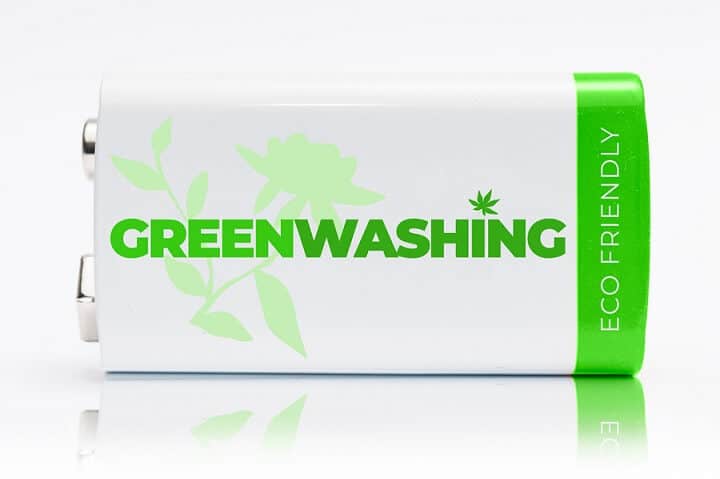The ACCC has released the findings from its recent internet sweep of environmental claims, and it is a must-read for businesses who make sustainability or environmental claims about their products or services.
The accuracy and truthfulness of environmental claims are becoming a key focus area of the ACCC, as more consumers are now using sustainability claims to make purchasing decisions. Environmental claims are difficult for consumers to verify and customers have to trust the claims made or impressions created by the businesses supplying the products and services. Misleading, meaningless, or unclear claims have the potential to undermine consumer trust and, more broadly, can hurt consumer confidence in sustainability claims in general, damaging genuinely sustainable businesses and wider efforts to improve sustainability across all sectors. Continuing to allow false or misleading sustainability claims to be made without effective monitoring and correction may also unfairly disadvantage businesses making genuine claims as they may spend more money ensuring they are doing things the right way.
The report can be read here, however, we have set out below some key takeaways.
-
Making vague or unclear environmental claims
The most prevalent issue identified by the ACCC was the high proportion of vague and ‘unqualified’ claims.
Specifically called out by the ACCC was the use by businesses of vague terms like ‘green’, ‘kind to the planet’, ‘eco-friendly’, ‘responsible’, ‘sustainable’, ‘biodegradable’, ‘compostable’, or ‘recyclable’ without providing further information. These terms can mean different things to different people, may have technical meanings that ordinary consumers may not be aware of, and do not provide enough information to allow for an informed purchasing decision.
Examples provided by the ACCC of vague and unqualified claims are claims that:
- Products are made using ‘sustainable’ materials. Without further qualifying information about which materials are being used, and why they are more sustainable, these claims can be confusing.
- Packaging ‘contains post-consumer recycled plastic’. This type of claim will be confusing if there is no information about the proportion of post-consumer recycled plastic used.
To overcome these vague claims businesses should provide explanations about what the claims mean and what aspect of the business or products they are referring to.
-
Absolute claims on the recyclability of products
Absolute claims give a very strong impression to consumers. Common absolute claims identified by the ACCC in their review include ‘100% plastic free’, ‘100% recyclable’, ‘Made from 100% recycled content’, ‘Zero emissions’, and ‘100% carbon positive’.
If the product or service does not meet the absolute claim, this can be misleading. The ACCC specifically warned businesses making such claims to take ‘particular care’ to ensure such claims are clear and backed by ‘robust evidence’.
The ACCC has also specifically identified issues with claims regarding the recyclability of products, including claims that products are ‘kerbside recyclable’, in circumstances where this is not the case. As what is recyclable can vary from state to state (and indeed, from one local council area to the next), businesses will need to undertake additional investigations before making such claims and be honest and transparent with consumers that kerbside recyclability can differ depending on local councils.
-
Confusing use of third-party certifications
The ACCC identified many businesses claiming affiliations with a variety of certification schemes. Whilst such certification schemes may make sense within an industry, or you and your employees know what certification means, businesses should take care not to presume consumers have this information or understand the certification schemes.
In particular, the ACCC warned that businesses making reference to certification schemes should:
- describe the nature of the certification scheme, and how it applies to their product or business;
- avoid broad statements that a business is ‘certified’ if it gives the impression that the entire business is certified when this may not be the case;
- be clear if certification relates to a component of a product, rather than the entire product. Similarly, if only particular products are certified, make sure this is clear.
Next steps for the ACCC
The findings detail that the ACCC has high-level concerns across the industries that were targeted in the sweep (particularly the cosmetic and personal care, textile garment and shoes, and food and beverage industries) and that the ACCC will undertake enforcement, compliance, and education activities where appropriate.
The ACCC flagged it will:
- produce updated economy-wide guidance material, as well as targeted guidance for specific sectors; and
- engage directly with businesses and industry associations to improve compliance.
Act Now
However the ACCC has handed our penalties to businesses for making misleading environmental claims, and as such, if you are making environmental claims about your business and/or the products or services it provides, it is vital that you are proactive and take steps now to make sure your advertising and marketing materials are not misleading to consumers. The ACCC has identified this as a key area for enforcement, so it is far better to address issues now, rather than once you have been contacted by the ACCC for information to substantiate your marketing claims.
While this may be daunting, here are a few quick steps you can take right now to get started:
- If you make claims that the ACCC could consider ‘vague’, do you have substantiating information? If so, check if it is up to date, and back up the claims;
- Check the links on your website are working and readily accessible, and are not broken or lead to outdated information;
- Check your product pages on your website to make sure the correct claims are being made; and
- Check if you make claims about certification, and if you do, also make sure you provide details of the certification scheme, what it means, how it verifies your claims, and what products it relates to.
Need some more help? Our team can assist you with navigating this difficult area.
Book a complimentary 15-minute consultation or call us at 1300 80 67 80.

